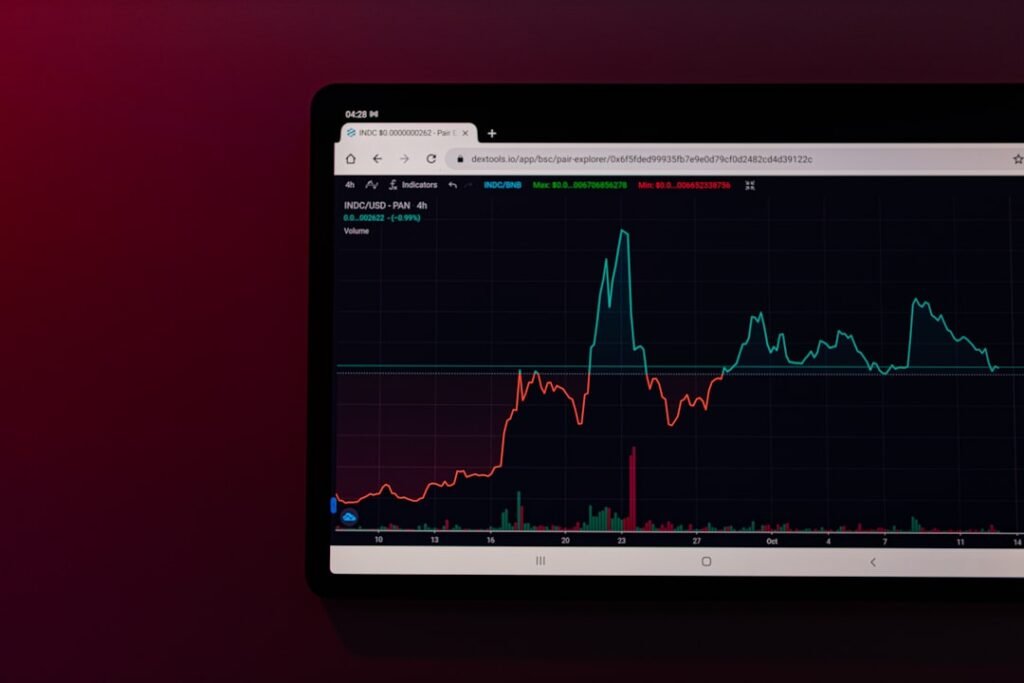Comparison of Mainstream Cryptocurrency Payment Gateways: How to Accept Cryptocurrency Payments?
As digital payments continue to evolve, cryptocurrencies are carving out their place as an alternative to traditional payment methods. More businesses are jumping on board, recognizing the potential for faster, more secure transactions with lower fees. With an estimated 650 million cryptocurrency owners globally and around 30,000 merchants worldwide now accepting Bitcoin, including major brands like Subway, Starbucks, BMW and Microsoft, the opportunity for businesses to tap into this growing market has never been greater.
Cryptocurrency payment gateways have become more user-friendly, offering smooth integrations and robust security features to meet the needs of businesses of all sizes. These gateways act as intermediaries between merchants and customers, facilitating secure and efficient transactions while often providing the option to automatically convert crypto payments to traditional currencies, protecting businesses from market volatility.
Top Cryptocurrency Payment Gateways for Businesses
NOWPayments
NOWPayments is a non-custodial payment gateway that attracts eCommerce businesses seeking flexible options. Supporting over 300 cryptocurrencies, it lets merchants maintain full control of their funds rather than transferring them to third parties.
Key Features:
- Auto fiat conversion: NOWPayments converts crypto to traditional currency automatically, protecting your business from market volatility
- Multiple integration options: API, plugins, invoices, and donation buttons for easy implementation
- Real-time analytics: Comprehensive transaction insights and reporting tools
NOWPayments works well for businesses that want a flexible, secure payment solution with broad cryptocurrency support. Its non-custodial approach appeals to merchants who want to retain control over their funds while enjoying the benefits of crypto payments.
Coinbase Commerce
Coinbase Commerce comes from Coinbase, one of the largest and most trusted cryptocurrency exchanges worldwide. This payment gateway allows merchants to accept cryptocurrency payments directly, building on Coinbase's established reputation in the crypto world.
Key Features:
- Multi-cryptocurrency support: Handles major cryptocurrencies including Bitcoin, Ethereum, and others
- User-friendly interface: Intuitive dashboard simplifies managing crypto payments
- Direct fund control: Gives you full custody of your cryptocurrency payments
- Customizable checkout experience: Adapt the checkout process to match your brand
Coinbase Commerce suits merchants seeking a trusted crypto payment gateway backed by a major cryptocurrency exchange. Its user-friendly features and direct fund control make it attractive for businesses moving into cryptocurrency acceptance.
CoinGate
CoinGate offers a comprehensive cryptocurrency payment gateway supporting over 70 digital currencies. This versatility appeals to businesses wanting to serve a wide range of crypto users. Popular among eCommerce platforms, CoinGate provides plugins for major systems like Wix, WooCommerce, and WHMCS.
Key Features:
- Crypto-to-fiat conversion: Automatically converts cryptocurrency payments to traditional currencies
- Point-of-sale solutions: Offers POS applications for physical stores
- Multiple integration methods: Plugins, API, payment buttons, and invoice links
CoinGate works well for businesses with both online and offline sales channels needing a versatile payment solution. Its combination of eCommerce plugins and POS applications makes it an excellent choice for multi-channel retailers.
BitPay
BitPay ranks among the oldest and most established crypto payment processors in the industry, known for reliability and strong security features. With a solid reputation for compliance and fraud prevention, BitPay has become a trusted name in cryptocurrency payments.
Key Features:
- Support for major cryptocurrencies: Bitcoin, Ethereum, and various stablecoins
- Automatic fiat settlements: Can settle payments in USD, EUR, and GBP
- Advanced security and fraud prevention: Robust security protocols and fraud prevention mechanisms
BitPay suits enterprises needing a robust, compliant payment solution with a proven track record. Large eCommerce platforms, multinational corporations, and businesses in highly regulated industries appreciate BitPay's compliance-focused approach.
CoinPayments
CoinPayments stands out as one of the most versatile crypto payment gateways available, offering an impressive range of cryptocurrency support. Its popularity continues to grow among businesses wanting to maximize their cryptocurrency acceptance options.
Key Features:
- Support for over 2,300 cryptocurrencies: The largest selection of supported cryptocurrencies
- Instant conversion to fiat currencies: Shields merchants from cryptocurrency market volatility
- eCommerce platform integration: Simple integration with popular systems like WooCommerce and Shopify
CoinPayments works for businesses wanting to offer the broadest possible cryptocurrency support to their customers. It's an excellent choice for global eCommerce stores aiming to attract a diverse, international customer base.
OpenNode
OpenNode focuses specifically on Bitcoin payments, specializing in using the Lightning Network for fast, low-fee transactions. Unlike many gateways supporting multiple cryptocurrencies, OpenNode concentrates on maximizing the speed of Bitcoin payments.
Key Features:
- Lightning network integration: Enables near-instant Bitcoin transactions with minimal fees
- Dual payment options: Supports both standard on-chain Bitcoin and Lightning Network payments
- Comprehensive analytics: Robust reporting tools for valuable insights into Bitcoin payment activities
OpenNode works best for merchants focusing specifically on accepting Bitcoin payments with maximum efficiency and minimal fees. It's perfect for eCommerce businesses wanting to tap into the growing Bitcoin user base.
Transak
Transak is a versatile fiat-to-crypto gateway that simplifies cryptocurrency purchases across multiple blockchains. This platform helps businesses onboard customers into crypto, making it ideal for platforms and applications wanting to provide smooth fiat-to-crypto conversion.
Key Features:
- Multi-blockchain support: Covers over 80 blockchains
- Diverse payment methods: Users can buy cryptocurrencies using debit/credit cards and bank transfers
- Developer-friendly integration: SDKs and APIs built for Web3 applications
Transak's multi-blockchain support, traditional payment options, and developer-friendly tools make it attractive for businesses expanding their crypto offerings. By providing direct fiat-to-crypto conversion, Transak helps companies tap into the growing cryptocurrency market.
Comprehensive Comparison Table
| Gateway | Supported Cryptos | Fiat Conversion | POS Support | Ideal For |
|---|---|---|---|---|
| NOWPayments | 300+ | Yes | No | Businesses seeking flexible, non-custodial solutions |
| Coinbase Commerce | Major cryptocurrencies | Yes | No | Merchants wanting a trusted, straightforward solution |
| CoinGate | 70+ | Yes | Yes | Businesses with online and offline sales channels |
| BitPay | Major cryptocurrencies | Yes | Yes | Enterprises requiring robust, compliant solutions |
| CoinPayments | 2,300+ | Yes | No | Businesses aiming for extensive cryptocurrency support |
| OpenNode | Bitcoin only | Yes | Yes | Merchants focusing on efficient Bitcoin transactions |
| Transak | 80+ blockchains | Yes | No | Platforms onboarding users into the crypto space |
Key Considerations When Choosing a Crypto Payment Gateway
Selecting the right crypto payment gateway for your business requires careful consideration. Here's how to make an informed decision:
Consider Your Business Model
Your business type influences gateway selection. Online stores need strong eCommerce integration, while physical shops require effective point-of-sale (POS) systems. If you operate both, look for gateways offering online and offline capabilities.
For international transactions, consider gateways known for their cross-border payment capabilities. The ability to handle multiple currencies and comply with various regional regulations is crucial for global businesses.
Evaluate Supported Cryptocurrencies
Match the cryptocurrencies your gateway supports to what your customers use. While Bitcoin remains popular, stablecoins make up 70% of all crypto transaction volumes. Research shows that 67% of users who have held cryptocurrencies purchased them to make a transaction, and 60% of consumers want to buy products and services with crypto.
Assess Integration Options
Verify that the gateway works smoothly with your existing systems. Many offer ready-made plugins for popular eCommerce platforms to simplify setup. For specialized needs, look for gateways with robust APIs for custom integration.
The ease of deployment varies significantly between providers. Low-code options like hosted payment pages can be implemented quickly, while API integrations might require developer resources and take 2-8 weeks depending on your setup.
Check Fees and Conversion Rates
Understand the fee structure to protect your profits. Crypto payment gateway fees typically range from 0.5% to 1%, much lower than traditional payment processors' 2-3%. However, watch for additional costs like currency conversion or withdrawal fees.
For payments involving currency conversion, providers often add a markup to the exchange rate. This hidden cost can significantly impact your bottom line, so transparency in pricing is essential.
Review Security Features
Good security is essential for financial transactions. Look for gateways with strong encryption, two-factor authentication, regulatory compliance (e.g., PCI DSS) and fraud prevention tools.
Consider whether you want a custodial or non-custodial solution. Non-custodial gateways let you control your funds completely but increase your responsibility and compliance requirements. Ensure your provider has proper licensing and follows anti-money laundering (AML) and know-your-customer (KYC) regulations.
Additional Considerations
- User experience: Test the payment process as a customer would to ensure it's intuitive and straightforward. Optimize conversion by reducing friction through wallet connections and saved preferences.
- Customer support: Responsive support matters, especially with time-sensitive transactions. Look for providers with dedicated account managers and technical support.
- Reputation: Research the gateway's history, user reviews, and standing in the industry.
- Scalability: Confirm that the gateway can grow with your business and handle increasing transaction volumes.
- Settlement times: Unlike traditional processors that hold funds for 7-14 days, many crypto gateways make funds available instantly or within days.
Benefits of Accepting Cryptocurrency Payments
Reach New Customer Segments
Adding crypto payment methods allows you to cater to new target groups. Millennials (Generation Y) have a natural understanding of digitalization and the purchasing power to hold cryptocurrencies as investors. Generation Z has grown up with digital services and finds blockchain concepts intuitive. By accepting crypto payments, you position your business as innovative and forward-thinking.
Tap into a Growing Market
The trend toward decentralization of financial services triggered by blockchain technology continues to accelerate. With over 200 million people engaging with cryptocurrencies and a total market cap reaching $2.5 trillion, the crypto economy has grown too significant to ignore. Major payment companies like PayPal and MasterCard have already integrated cryptocurrencies into their systems, and central bank digital currencies (CBDCs) are being widely discussed and tested.
Reduce Business Risks
Cryptocurrency payments eliminate chargebacks, which are common with credit card payments. This is due to the nature of blockchain payments: they are sent by the buyer rather than requested by the merchant. However, this can result in payment errors when customers send incorrect amounts. Quality crypto payment providers automatically resolve these issues and provide refund options.
These gateways also eliminate currency volatility risk for crypto/fiat currency pairs. They ensure that merchants receive the exact fiat amount they priced their goods at, regardless of cryptocurrency price fluctuations during transaction processing.
Enjoy Faster Settlements and Lower Fees
Unlike traditional payment processors that hold funds for extended periods, cryptocurrency payment gateways typically make funds available instantly or within days. This improved cash flow can significantly benefit business operations.
Transaction fees are generally lower than traditional payment methods, especially for cross-border transactions. While network (gas) fees vary by blockchain, they're often more competitive than international bank transfer fees or credit card processing fees.
Implementation Best Practices
When integrating a cryptocurrency payment gateway, consider these best practices:
-
Start with major cryptocurrencies: Begin with Bitcoin and perhaps a few major altcoins rather than overwhelming customers with too many options. The top 10 cryptocurrencies typically cover most customer preferences.
-
Optimize the checkout experience: Implement wallet connections and save customer preferences to reduce friction. Support multiple blockchains but guide users toward the most efficient options for your use case.
-
Provide clear instructions: Many customers may be new to crypto payments. Offer clear guidance on how to complete transactions.
-
Display prices in familiar currencies: Show prices in local fiat currencies while offering crypto conversion at checkout to avoid confusing customers.
-
Ensure regulatory compliance: Work with your payment provider to understand and comply with local regulations regarding cryptocurrency transactions.
-
Educate your team: Ensure your customer service and accounting teams understand how crypto payments work to handle inquiries and reconciliation effectively.
The Future of Crypto Payments
As we move further into 2025 and beyond, cryptocurrency payment gateways continue to evolve. We're seeing increased integration with traditional financial systems, better user experiences, and more robust regulatory frameworks. The line between traditional and crypto payments is blurring as more businesses offer hybrid solutions that cater to both conventional and digital currency users.
The emergence of central bank digital currencies (CBDCs) and increased institutional adoption of cryptocurrencies suggest that digital currency payments will become increasingly mainstream. Businesses that adopt crypto payment solutions now position themselves advantageously for this evolving financial landscape.
By carefully selecting and implementing the right cryptocurrency payment gateway for your business needs, you can tap into new markets, reduce transaction costs, improve cash flow, and position your business at the forefront of payment innovation. The key is to choose a solution that aligns with your business model, technical capabilities, and customer preferences while ensuring security, compliance, and reliability.












